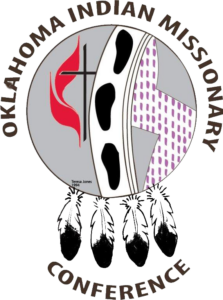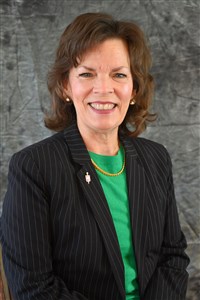
OIMC Advance Projects:
Construction Project
Advance # 583633
Parish Partners
Advance # 583634
Native American Children’s Fund
Advance # 583581
Month: March 2020
-
COVID-19 Update for the Oklahoma Indian Missionary Conference
To: Pastors and Congregations of the Oklahoma Indian Missionary Conference From: Bishop Jimmy Nunn and the Rev. David Wilson Date: March 26, 2020 Re: …
-
Rev. Dr. Lois V. Glory-Neal to receive 2020 Distinguished Graduate Award
Saint Paul School of Theology will be honoring the Rev. Lois V. Glory-Neal with the prestigious Distinguished Graduate Award on Friday, October 2 for reflecting the mission of the seminary…
-
Drive to Include Native Americans in 2020 census and voter registration
The Oklahoma Indian Missionary Conference is partnering with the National Indian Urban Family Coalition (NUIFC) to promote and help Native Americans to complete their 2020 census forms in Oklahoma City…
-
OIMC Native immersion experience draws United Methodists from seven states
“Extreme hospitality” is the way one participant described her experience during the fourth annual Native immersion hosted by the Oklahoma Indian Missionary Conference March 11-14, 2020, in Oklahoma City. Thirty-two…
-
OIMC delegation prepares for General Conference
The Oklahoma Indian Missionary Conference delegation to both General and Jurisdictional conferences has been busy meeting to learn about the issues facing the denomination amid unknown challenges brought about by…
-
OIMC launches satellite course of study
The Oklahoma Indian Missionary Conference launched its first satellite course of study class, “Bible I,” on March 6, 2020. The course, hosted by The Muscogee Creek Nation, is part of…
-
OIMC serves Native communities impacted by coronavirus
In compliance with recommendations from Oklahoma state officials and the Center for Disease Control, many activities in the Oklahoma Indian Missionary Conference (OIMC) have cancelled. From wild onion dinners to…
Contact Information
Conference Headquarters
602 SW 35th
Oklahoma City, OK 73109
Office: 405-632-2006
Fax: 405-632-0209
Resident Bishop:

Bishop Laura Merrill
1501 NW 24 Street
Oklahoma City, Oklahoma 73106
405-530-2000
Assistant to the Bishop:
Rev. Margaret Johnson
mjohnson@oimc.org
Director of Connectional Ministries:
Rev. Donna Pewo
Administrative Assistant:
Linda Draper
Northeast Region Superintendent:
Southeast Region Superintendent
Rev. Jami Moss
jmoss@oimc.org
Southwest Region Superintendent:
Rev. Julienne Judd
jjudd@oimc.org
SUPPORT OUR MINISTRIES
Search Our Site
